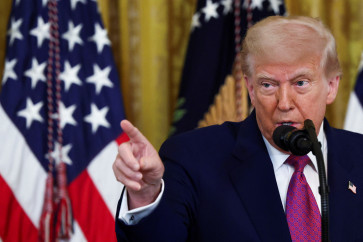Popular Reads
Top Results
Can't find what you're looking for?
View all search resultsPopular Reads
Top Results
Can't find what you're looking for?
View all search resultsThe mirage of geoeconomics
The US does not have the power to inflict significant economic damage on China.
Change text size
Gift Premium Articles
to Anyone
A
few years ago, there was an overarching global consensus on trade: the freer, the better. Only nerdy economists spent much time agonizing over the details of trade policy, and special-interest groups were pretty much alone in advocating protections. Overall, tariffs were relatively low, most governments sought to attract foreign investment, and technology transfers were viewed as a way to spread prosperity. Not anymore.
Thirty-five years after the military strategist Edward N. Luttwak coined the term “geoeconomics” to describe when the “logic of conflict” meets the “grammar of commerce,” the concept is gaining new resonance. There is a growing consensus in many countries that trade policy should be viewed mainly through the lens of geopolitics.
But as Luttwak observed, a geopolitical conflict is, at best, a zero-sum game: one side’s gains are the other side’s losses. By contrast, trade is typically a win-win game, no matter how vociferously United States President Donald Trump argues that other countries are ripping off the US. This tension is unavoidable, any attempt to use economic measures for geopolitical ends will eventually run up against it.
And yet, most policymakers never get that far. Trump, for example, is pursuing such an ill-conceived tariff strategy that it can only be counterproductive.
It should be obvious that, in a war, you should seek to inflict more damage on your enemy than on yourself. But all available simulations of the impact of the various tariff scenarios show that the US would lose more than China. The reason is simple: the US and China account for about one-quarter and one-fifth of the global economy, respectively, but China slightly surpasses the US in exports, and about 80 percent of those exports go to countries other than America.
In other words, the US does not have the power to inflict significant economic damage on China. But, by imposing high tariffs on China, it does raise the price of imports for domestic businesses and households, whether because they have to pay the tariffs or because they have to substitute more expensive imports from elsewhere. This is probably a key reason why Trump agreed to a truce with China.
In any case, even if we are talking about other countries, with different economic sizes and trade volumes, tariffs are not a useful instrument to weaken a geopolitical adversary. Nor are other popular geoeconomic tools, such as restrictions on supplies of essential inputs. For example, earlier this year China began to require export licenses for rare earth minerals.



















